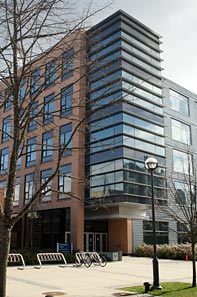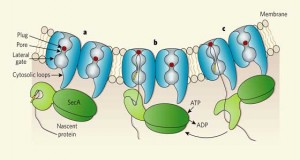We are interested in the essential process of protein transport. Indeed, about 30% of proteins that are synthesized in the cytosol will need to cross membranes in order to reach their final destination. As membranes are intrinsically impermeable, the question arises: “How does membrane passage of proteins occur? ” In short, it is an energy-dependent process that is mediated by membrane protein complexes called translocases. In the lab, we study the structure and function of the essential and universally conserved system termed the Sec translocon. This nanomachine catalyzes the transport of hundreds of different polypeptide substrates. We analyze the Sec translocon into a functional in vitro translocation system to understand the mechanism at the molecular level.

Life Sciences Centre
2350 Health Sciences Mall
Vancouver, British Columbia
Canada V6T 1Z3
The goal of the LSI is to generate and sustain innovative, interdisciplinary research dedicated to discovering fundamental biological processes of life, advancing our understanding of disease processes and developing potential therapeutics.
Gifts from friends, alumni and other community members enable the University of British Columbia to carry out many outstanding research projects 

